
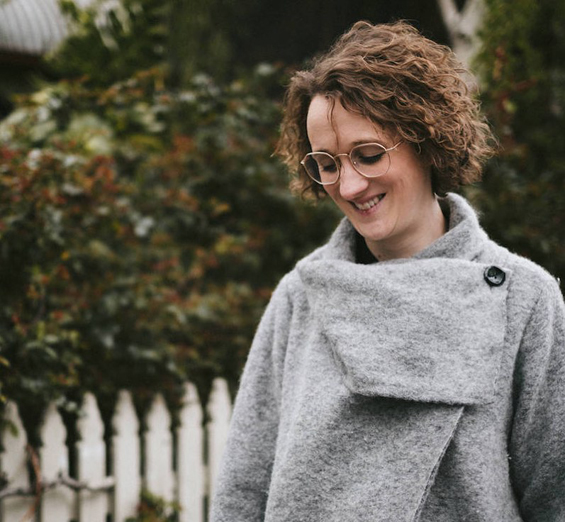
photo: Brett Scapin
SPOTLIGHT 29: NAT BARTSCH | LUKAS LAUERMANN | EMILY KUHN
textura is thrilled to feature Nat Bartsch, Lukas Lauermann, and Emily Kuhn in its twenty-ninth‘Spotlight,' with each artist represented by a superb new album: Forever More (Bartsch), I N (Lauermann), and Sky Stories (Kuhn). textura is deeply grateful to the artists for contributing to the article.
NAT BARTSCH
Who: I'm a pianist and composer from Melbourne, Australia. I grew up in the Dandenong Ranges and Yarra Valley but now live in the inner north of the city, a beautiful multicultural area where a lot of creatives live. I grew up playing classical piano, mainly drawn to the Romantic and twentieth-century composers—Debussy, Bartok, Beethoven, etc. After high school I studied popular music at TAFE, and started gigging in rock and r'n'b bands. Eventually I studied jazz at the Victorian College of the Arts and started composing my own music, and now I'm studying a Masters in classical composition at the Melbourne Conservatorium of Music. Coming full circle!
What: I've become most well-known for my lullabies, first released in 2018 as the album Forever, and No Time At All. I wrote it after my son was born. It was influenced by music therapy research, designed to help babies fall asleep but also be enjoyable for parents to hear. It works! It's enjoyed by people from all walks of life: babies sleep to it, and it sometimes accompanies incredibly personal moments such as childbirth or death, helps people with mental illness, autism, grief and those difficult early years as a parent.
These days I tend to refer to myself as a neo-romantic artist, creating lyrical melodic music that sits between jazz and classical genres. I use my jazz background to embellish and elaborate my compositions and sometimes play the music in an ensemble with jazz musicians (such as my new album re-interpreting my lullabies, Forever More).
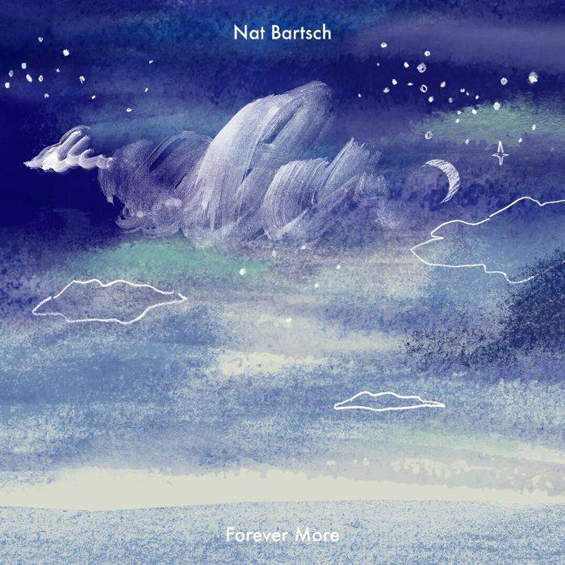
Currently: I recently released Forever More, a jazz re-interpretation of my lullaby album, with a sextet. My simple ostinato-based piano songs turned out to be the perfect framework for accomplished jazz artists to play over; their music-making is just incredible!
I'm now working on a classical album, Hope, which will be hopefully recorded as soon as covid restrictions allow (Melbourne has been in hard lockdown for months). It will be an album for piano, string quartet, and electronics, and produced by Luke Howard. A three-track single was released in March called Searching for the Map.
I originally planned to write this ‘hopeful' music in response to climate change, Trump, and all those difficult things in 2019. Then the Australian bushfires came, and then Covid-19, and of course things got even more difficult for us all! I now think of the album title to be an abbreviation of hopefulness and hopelessness; it would be inaccurate to say the album was purely borne out of a feeling of hope. But the end result will hopefully be a soothing album for these times, like my other releases seem to be.
Musical philosophy: As I grow older, I feel very strongly about two things: first, that the conventions of genre really don't matter; as long as you're making the music you want to make and you've found a place to share this with others that appreciate it! And second, being mentally well is integral to being a professional artist (and it's okay to ask for help!). I would not be making the music I do today without a huge amount of support with my mental health; I really want to counter the narrative that ‘suffering' has value for artists… the best records I've made were when I was most well.
Favourite artists and strongest influences: I loved studying briefly with Nik Bärtsch and Tord Gustavsen in 2008, two artists with a total commitment to their aesthetic and philosophies. You hear their albums and know exactly who is at the piano. I greatly admire them both.
The music of indie-rock artists greatly influences my love of ostinatos and lyrical melody: Sufjan Stevens, Radiohead, and Elbow in particular.
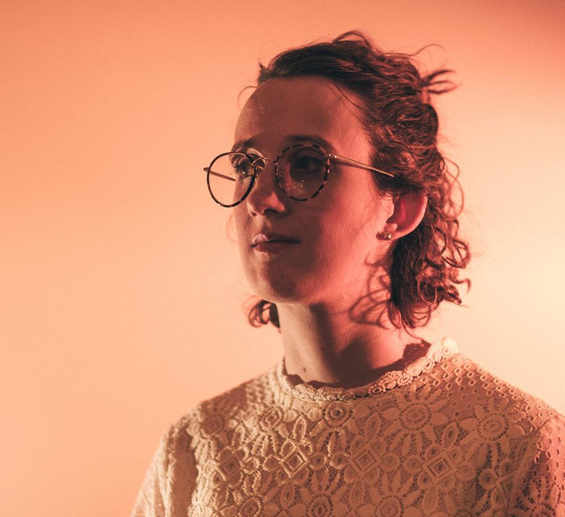
photo: Brett Scapin
Recordings that have deeply affected me: Arvo Pärt's In Principio: Da Pacem Domine, written in response to the 2004 Madrid bombings, is one of the most heartbreaking and important works I have ever heard. Stunningly captured as always on ECM from inside a church in Estonia. The way Pärt composes every note with such care, tenderness, and thought, and the way he quietly connects it all to his overarching compositional principles… What an indelible mark he has left on contemporary classical music.
Elbow's Seldom Seen Kid: this indie rock band was my first love, introduced to me by my own first love. Their use of ostinato, melody, groove, and character are unparalleled. Craig Potter, their keyboard player (and producer of this album), is the glue that holds the band together. His approach to the piano (such as on the track “Mirrorball”) influences my composing all the time.
Luke Howard's Sun, Cloud: I met my dear friend/collaborator Luke Howard in 2013, around the time this pivotal album of his was released. His encouragement and mentorship are some of the reasons I feel like I've found my place in the industry and my sound as a composer. He too has a background in jazz piano (we both graduated from the VCA at different times) but has shifted across to neoclassical and like me uses his jazz training as a composer. “Portrait Gallery,” from this album, was simply an improvisation at the piano, which was recorded then notated, and is now one of his most iconic and beloved pieces.
A memorable event, concert, or experience: One of the most memorable concerts I ever attended was while I was studying with Tord in Oslo in 2008. It was the Oslo Jazz Festival, and Jan Garbarek Quartet were playing outside at the Akershus Fortress. A storm rolled in, and in the middle of an incredible drum solo by Manu Katché, the thunder started and Manu seemed to build his solo around it. It was magnificent. And then the heavens opened, and I ran home to my tiny hotel room!
Website: NAT BARTSCH
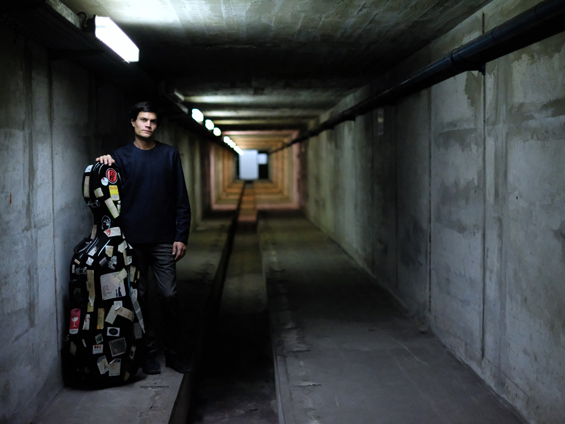
photo: Julia Haimburger
LUKAS LAUERMANN
Who: I was born in Vienna, Austria and grew up in a small town nearby. When I started to study cello and music education at the University of Music and Performing Arts in Vienna, I also moved there. During my classical education on the instrument, I played with local alternative rock and indie bands. Since then my network has kept growing, and I've collaborated with a lot of artists for recordings and live shows and created music for theater and film. In 2014 I also began performing solo and released my first album in 2017.
What: I define my music as ‘barrier-free modern classical.' It oscillates between the intellectual earnestness of classical compositions and the emotional directness of pop music.
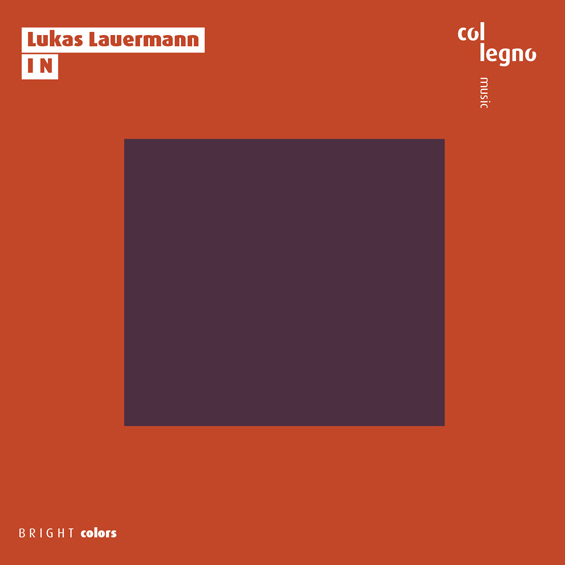
Currently: My latest solo release is the album I N. I'm happy that I've been able to perform the music live, at least in Austria, at the moment. Of course a lot of projects were postponed because of the pandemic and hopefully will take place in the next months. Those include Ganymed in Power, a theater performance at Kunsthistorisches Museum Vienna, and also the Biennale Architettura in Venice, for which I'm working together with a team on an installation. Besides that shows with Donauwellenreiter, Alicia Edelweiss, Emily Stewart, and others are planned.
Musical philosophy: Listen to my music, but do not look for me, look for you.
Favourite artists and strongest influences: Thom Yoke, J.S. Bach, and John Cage
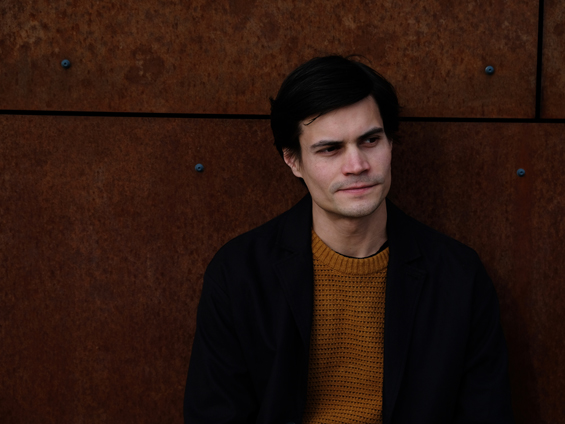
photo: Julia Haimburger
Recordings that have deeply affected me: I think the music not written yet is what affects me the most.
A memorable event, concert, or experience: I really don't think so much about unique experiences; it's the whole experience with all the diversity that goes with it that matters.
Website: LUKAS LAUERMANN
photo: Zack Sievers
EMILY KUHN
Who: I grew up in Charlottesville, VA, a beautiful university town by the Blue Ridge Mountains. I was mentored by two incredible trumpet players: Greg Thomas, my high school band director, and John D'earth, the driving force behind Charlottesville's jazz community. Having teachers who believed in me and wanted to hear what I had to say, musically and personally, was foundational in my decision to pursue music, first at Oberlin and then professionally.
I studied Jazz and Environmental Studies at Oberlin through their Double Degree program. There, I met many friends and collaborators who I still work with today. I had the unparalleled opportunity to study with Sean Jones, Eddie Henderson, and Jamey Haddad, among other teachers and mentors.
I moved to Chicago in 2016, where I split my time between playing and teaching. I lead a chamber jazz nonet, Helios, and a chordless jazz quartet with Joe Suihkonen, Katie Ernst, and Nate Friedman. Outside of these bands, I play regularly with groups including Latin Fusion ensemble Son Monarcas, Kitt Lyles' Real Talk Collective, Sam Pilnick's Nonet Project, Erik Skov's Liminality, and John Dorhauer's Heisenberg Uncertainty Players. I'm the band director for a music education program called MUSIC Inc, which provides music programming in schools on the West side of Chicago, and I teach Tae-Kwon-Do classes through Connelly's Academy of Martial Arts. I've also spent several summers teaching at Stanford Jazz Workshop.
What: I'm primarily a jazz musician, but I also listen to and play Latin, folk, pop, and classical music, and I aspire to write and play music that draws from all of these influences. In my writing I'm interested in exploring the push and pull between orchestration and improvisation. My band Helios features a vocalist, horns, rhythm section, and string quartet; I try to write music that takes full advantage of the classic string quartet sound while leaving space for spontaneous musical ideas. I value accessibility and simplicity in music as both a trumpet player and composer/bandleader, and my writing and playing is often focused on melody and lyricism. I love music that grooves, improvisation that feels like a conversation, and big, lush sounds.
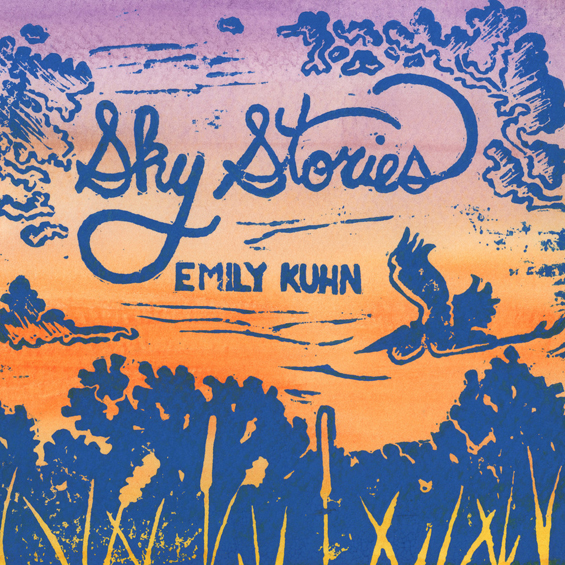
Currently: On October 30, 2020, I'm releasing my debut album, Sky Stories, on BACE Records. The album features Helios and my free jazz-leaning quartet, Kuhn/Suihkonen/Friedman/Ernst. Sky Stories is my tribute to Chicago's communities and environments; many songs are inspired by specific moments in the day or places in the city, and the musicians on the album are involved in many different music scenes across Chicago. The album goes in between lush, orchestrated arrangements and more intimate improvisations.
The pandemic has put a lot of my other creative projects on hold, but I'm excited for the release of a new Son Monarcas album in early 2021, an upcoming video from Real Talk Collective, and an upcoming album with Sam Pilnick's Nonet Project. I also have a duo project with bassist Kitt Lyles, and we've been putting out an ongoing quarantine music video series of original and traditional folk and jazz songs.
Musical philosophy: I try to approach music from a place of simplicity, humility, and openness, without preconceived notions of where the music is supposed to go. I also deeply believe that music is inseparable from the community that it is created in and that that community is what gives it its depth.
Favourite artists and strongest influences: Ambrose Akinmusire embodies the spirit of music that I aspire to. I got to work with him a little when I was a jazz mentor fellow at Stanford Jazz Workshop, and I was struck by his humility and generosity, both musically and personally. His commitment to craftsmanship on the instrument, and the extent to which he can play anything he hears, is a big inspiration to me.
Esperanza Spalding's songwriting is so malleable and interesting, and I find myself coming back to her records over and over. I love how effortlessly she glides between genres, and how she is able to tell a story with each song. Her music has had a big influence on how I approach writing for a chamber jazz ensemble.
John D'earth was my first jazz trumpet teacher, and he is still one of my favourite musicians to listen to and one of the biggest influences on my playing. He is one of those musicians who makes everyone he's playing with sound better, and he has an enormous heart which comes through in his playing. He is also just a really swinging trumpet player.
photo: Zack Sievers
Recordings that have deeply affected me: Ambrose Akinmusire's The Imagined Savior is Far Easier to Paint is one of the most impactful records I've ever heard. It changed the way I thought about the trumpet and improvisation, and it has so much musical integrity.
Laura Mvula's Sing to the Moon is such a cathartic record for me. I love her lyrics and the impeccable orchestration of the songs. I've listened to this record in a lot of different moments of change in my life and I always get different things out of it.
Ella Fitzgerald and Louis Armstrong's Ella and Louis, which I think is a perfect record. Every song feels so good.
A memorable event, concert, or experience: Teaching at Stanford Jazz Workshop. I first got involved in the SJW community as a Jazz Mentor Fellow in the summers of 2016 and 2017, then returned for another summer to teach. SJW is the most welcoming, affirming, and creative jazz community I've ever been a part of; it really feels like a family, and I learned so much about playing, teaching, and being a good person from the other mentors, faculty members, and students. The first summer I did the program was right before I moved to Chicago, and I had been having second thoughts about whether I wanted to jump into being a freelance musician. Working at SJW, more than anything, gave me the confidence to do it.
Website: EMILY KUHN
October 2020![]()